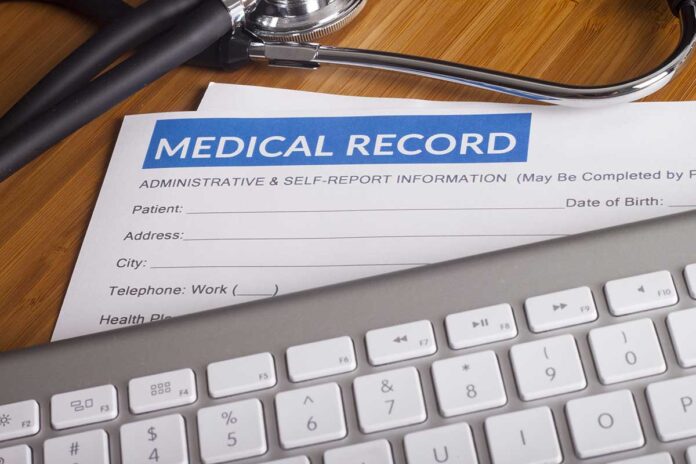Referring to a bill that would remove protections for Pennsylvanians’ health data privacy, Stephen Caruso’s October 4th article in the Pennsylvania Capital-Star “Pa. House passes bill to expand open records requests for state health data” quoted the Pennsylvania Newsmedia Association as saying “This law has become an impenetrable barrier that shields public access and accountability related to infectious diseases and other community health issues.”
We write to correct the record, to defend Pennsylvania’s public health system from the dangerous legislation that passed along party lines in the House, and to urge the Senate to stop House Bill 1893 in its tracks by declining to take up this disturbing bill.
On its surface, the legislation seems to promote government transparency — and who doesn’t want more transparency?
Advocates for the bill argue that more transparency about public health disease investigations will help the public stay safe from communicable diseases.
As the COVID-19 pandemic has shown, we all want to keep our community safe from infectious diseases, nobody more so than our public health infrastructure.
But House Bill 1893’s fairy tale about transparency, sponsored by Rep. Craig Staats (R-Bucks), has a dangerous cost: this bill would destroy public trust in our healthcare system by making the private details of disease investigations subject to Right-to-Know requests.
Disease investigations occur when a Pennsylvanian either tests positive for a communicable disease at a public health clinic or one is diagnosed by their personal physician. Pennsylvania law mandates reporting this information to public health officials.
The public health system’s role is to collect deeply personal health information so that the public can receive timely and accurate aggregated data about the spread of a disease, and information about evidence-based prevention measures. This system of information sharing both protects individual privacy and the public’s health. In their effort to promote transparency, legislators will shove personal privacy off the edge of a cliff, with public trust in our healthcare systems falling closely behind.
As advocates for a high quality of health for LGBTQ+ Pennsylvanians, we know that this trust is lifesaving. For years, the stigma associated with receiving an HIV test was too great a barrier for many people to overcome; it still is for some. We work diligently to encourage people to get tested.
And if they test positive, we need them to participate in the partner notification process so that any other person at risk can get quickly tested and treated.
The stigma associated with being diagnosed with certain communicable diseases like HIV, syphilis, and hepatitis already presents a challenge when it comes to partner notification. Pennsylvanians who comply with partner notification are willing to give up some privacy to keep other people healthy and alive.
But we can be sure that Pennsylvanians’ willingness to participate in these lifesaving processes would be eradicated if their private health information could become subject to Pennsylvania’s Right to Know law.
Advocates for this bill claim that federal patient privacy measures, like HIPAA, would continue to protect Pennsylvanians.
However, House Bill 1893 would undermine these protections by allowing Right to Know requests on a Pennsylvanian’s history of, or risk for, communicable diseases like HIV or other STIs.
A person’s HIV status is and should always be protected medical information that is only made public by the individual. People newly diagnosed with HIV need access to treatment, not government-enabled exposure to stigma, ridicule, and judgement. This jeopardizes the public’s health: once a person’s private medical information is made public, the harm is irreversibly done.
The day-to-day work of disease investigators would be made impossible without public trust in the confidentiality of these investigations. Our state and local government health workers have dedicated their careers to public health. They work day and night through disease outbreaks, including the COVID-19 pandemic, to stop the spread of infectious diseases and to save countless lives. But they can’t do that if people don’t trust them to protect their privacy.
Instead of introducing harmful legislation that defies the science of disease prevention, legislators should listen to our public health workforce and ensure appropriate resources for disease investigations.
Staats’ bill plays politics with our lives by trying to score political points under the guise of increasing the transparency and efficacy of the public health system, when many of the legislators who support this dangerous bill have ignored the recommendations of the best public health scientists in the world by fighting against mask and vaccine mandates during the COVID-19 pandemic.
Transparency is actually a good thing, and something we should fight for. But there are appropriate limits, and protecting our public health system’s ability to manage disease investigations with confidentiality is among the most important of them. House Bill 1893 will have severe unintended consequences by putting Pennsylvanians already vulnerable to communicable diseases at additional risk.
The Pennsylvania Newsmedia Association is wrong on this issue, and we implore the Senate to defend public health by refusing to take up this bill. Actually, public health is a good thing, and it’s worth defending.
Dr. Katharine Dalke, MD is a Psychiatrist at Penn State Health and Penn State College of Medicine. Her opinion may not reflect the position of her employers. Adrian Shanker is Executive Director, Bradbury-Sullivan LGBT Community Center in Allentown, Pa. This op-ed first appeared in the Pennsylvania Capital-Star.

